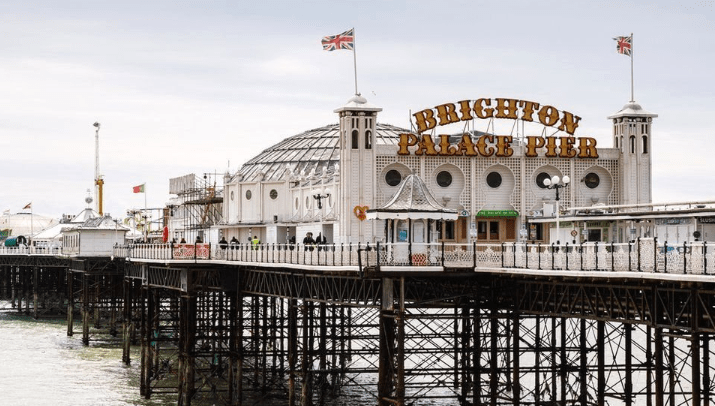In a significant development for the London financial scene, Brighton Pier Group – the owner of the iconic 126-year-old Brighton Palace Pier – has announced plans to delist from the capital’s Alternative Investment Market (AIM) and revert to private ownership.
This move marks yet another departure from the city’s junior stock exchange and underscores the pressures facing mid-sized leisure and entertainment businesses in the UK.
Decision to Delist Amid Tough Market Conditions
Brighton Pier Group, which also owns a portfolio of bars and mini-golf venues across the country, cited a combination of factors behind its decision, including “bad weather, falling consumer spending, rising wage costs and higher interest rates.”
These economic pressures, which have intensified in the post-pandemic period, have led the group to conclude that remaining on the AIM no longer serves the long-term interests of the business or its investors.
Shares in the group plummeted by up to 60% during Wednesday morning’s trading session following the announcement. The company said it had endured “persistent challenging trading conditions” since the Covid-19 crisis, prompting internal cost-cutting measures and the disposal of non-performing assets.
The group stated in its market update that it had undertaken “a careful review of the benefits and drawbacks” of remaining listed, ultimately concluding that it is in the “best interests” of the business to return to private hands.
A shareholder vote on the proposed delisting is scheduled for 22 April. For the motion to pass, it will require the support of at least 75% of shareholders. If successful, the company will be removed from the London Stock Exchange on 2 May.
Inside Brighton Pier Group: A Diverse Leisure Portfolio
Brighton Pier Group is chaired by Luke Johnson, a veteran entrepreneur known for his leadership roles at Pizza Express and Patisserie Valerie.
According to its most recent annual report for the year ending 24 December 2023, Johnson holds a 27% stake in the company and receives a £20,000 annual salary for his role as chairman.
Beyond its flagship Brighton Palace Pier – a key tourist attraction drawing millions each year – the group also owns Lightwater Valley Family Adventure Park in North Yorkshire, a popular destination for family outings.
Additionally, it operates a number of themed bars and indoor mini-golf venues, placing it firmly within the UK’s competitive leisure and entertainment sector.
One of the key drivers behind the decision to delist is the “disproportionate” cost associated with maintaining a public listing, estimated between £250,000 and £300,000 annually. The company believes these funds could be better spent on business development and operational enhancements.
Furthermore, Brighton Pier Group pointed to liquidity challenges on AIM, explaining that the limited trading volumes have restricted shareholder flexibility and contributed to increased market volatility.
Despite these issues, the company noted that its financial performance for the year ending 29 December 2024 remained in line with expectations. However, the ongoing cost-of-living crisis continues to impact consumer behaviour, with a “material impact” on discretionary spending.
While overall sales dipped slightly over the past 12 weeks compared to the previous year, the business saw a boost in visitor numbers in March due to an unseasonably warm spell.
London AIM Faces Further Decline
The company’s departure would add to the growing list of firms exiting AIM, with recent data from accountancy group UHY Hacker Young revealing that 71 companies delisted in the year to 12 February – reducing the number of firms on the exchange to fewer than 700, the lowest tally since 2001.
Model train manufacturer Hornby is among the latest to announce its delisting, citing similar reasons related to cost savings and the desire to reduce regulatory obligations.
As Brighton Pier Group prepares to make its next strategic move, attention now turns to the outcome of the shareholder vote. A shift to private ownership may provide the flexibility the firm seeks to navigate uncertain economic terrain while investing in its core leisure assets.






